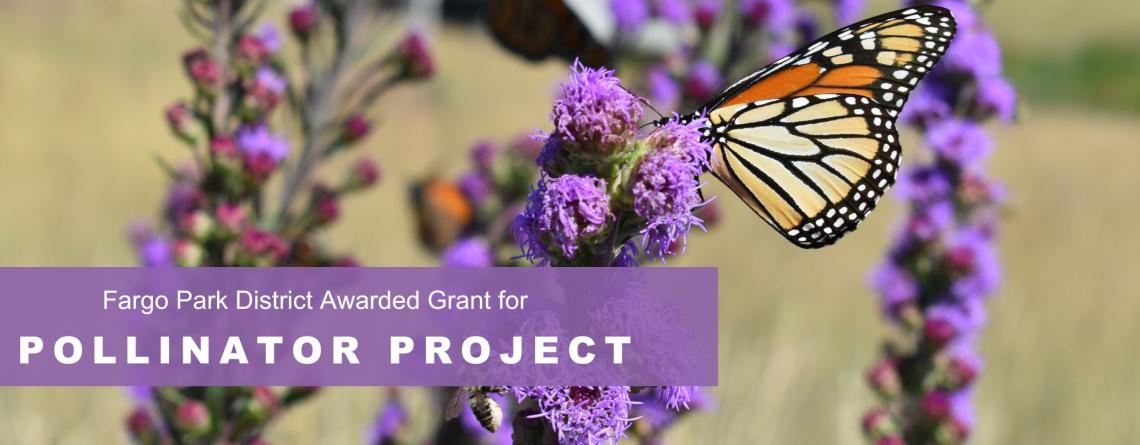The Fargo Park District was recently awarded a grant from the North Dakota Industrial Commission’s Outdoor Heritage Fund for the Urban Pollinator Plots Project, which will assist in establishing small urban pollinator plantings in local parks. The plantings will concurrently grow native pollinator-friendly plants and help to build community understanding of the importance and needs of pollinators.
The Urban Plots Project is a collaboration between the Fargo Park District, Audubon Dakota and North Dakota State University. The grant will be used to plant and maintain small urban pollinator gardens and tracts of native prairie with an emphasis on forbs and wildflowers at six Fargo parks including Heritage Hills, Forest River, Unicorn Park, Iwen Park and others.
“We value any opportunity to restore our natural prairies and create critical pollinator friendly habitats in our parks,” says Fargo Park District Forester Sam DeMarais. “We are honored to have received funding to continue our restoration work and are grateful for our partnership with organizations like Audubon Dakota, NDSU and the Outdoor Heritage Fund who share our vision.”
Since 2014 the Fargo Park District has partnered with Audubon Dakota on habitat restoration at 15 different sites impacting more than 400 acres of land. These projects have included planting and restoring native prairies, management of invasive species and planting pollinator friendly gardens. Several areas across the Park District have been converted from turfgrass to environmentally rich habitat for wildlife and pollinators. Planted pollinator gardens and restored areas include Forest River, Orchard Glen, Eagle Valley Pond, Golden Valley Pond, Mickelson Fields, the North Softball Complex and Urban Plains.
The Urban Plots Project is a pilot project of the Urban Woods and Prairies Initiative, which is led by Audubon Dakota and currently implemented across six North Dakota cities.





